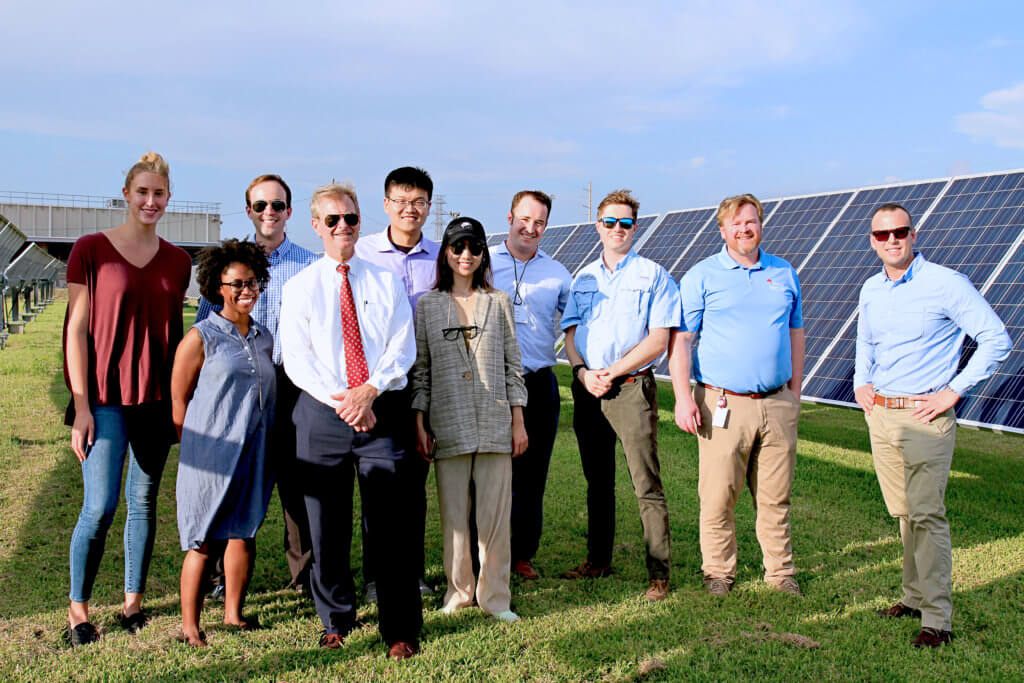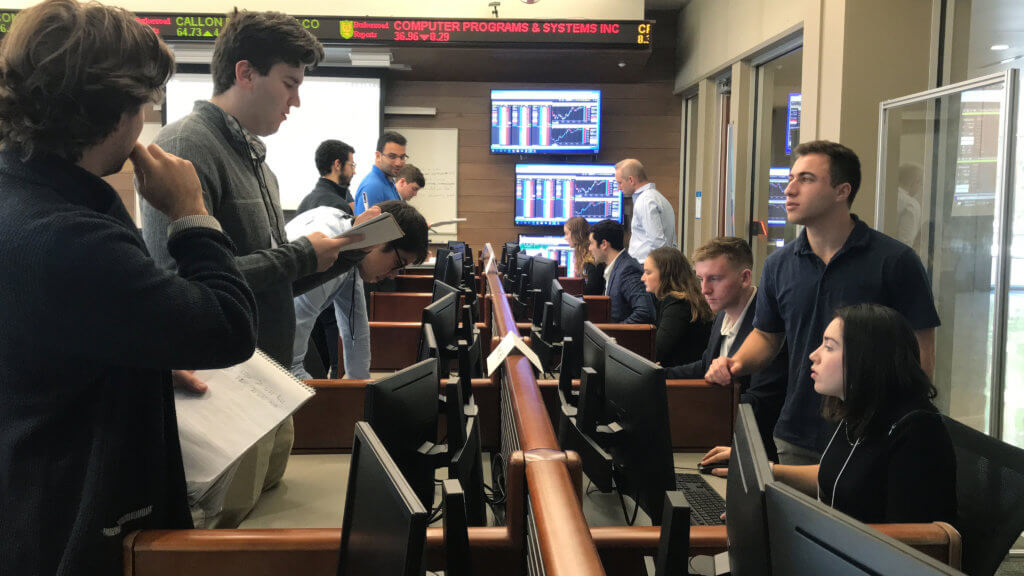Angelica Jarvenpaa from Castiglione Della Pescaia, Italy, felt she had a large gap in her skill set, particularly in the areas of energy, trading, and analytics. To solve this and advance her career, she signed up for the Master of Management in Energy (MME) offered by Tulane University’s Freeman School of Business.
“I have the highest regard for Tulane’s faculty, their extensive experience in the energy sector, and their networks across the industry,” says Jarvenpaa, who graduated in 2018 and is now an associate at Morgan Stanley.
Joining the Freeman School of Business builds on one’s undergraduate and work experience — and breathes new life into them. This was the case for Michael Furrow from Houston when the petroleum engineer was laid off when the pandemic first struck.
“I decided I wanted to continue my education into energy, but pursue a wider range of topics that would put me in control of my career,” says Furrow. “In the MME programme, I learned key financial information regarding the industry that helped me land a good job.”
On his first day, he connected with his classmates, who came from similar backgrounds. Although his schedule was extremely busy during the first month, and transitioning to university life had its challenges, he adapted in what felt like no time.

Students join the MME programme for many reasons, including better career opportunities after graduation. Source: Tulane University — Freeman School of Business
New Orleans native Zoe Gaber has a totally different reason for taking up the MME: the climate crisis.
“I received a Bachelor of Science in Geology, with the intention of working in the oil and gas industry. During the four years I was completing my undergraduate degree, the energy industry shifted to a focus of phasing out fossil fuels. I decided the MME programme was the best way to diversify my knowledge for the new energy climate,” Gaber shares.
She took on a part-time TA job on top of a heavy course schedule and gradually increased her workload, but has no regrets. She enjoys getting the most out of her day as she feels more productive this way.
The MME – one of the innovative STEM-designated programmes by the Freeman School of Business – offers six specialisations ranging from Banking and Finance to Renewable and Sustainable Energy. This means students can easily tailor the course to their career aspirations.
Not only do MME students get a foundation in accounting, analytics and statistical analysis, but they also learn about energy systems, renewable fuels and technologies, and energy transitions, as well as behavioural and institutional barriers to achieve sustainable energy.

The professors at Freeman School of Business have extensive industry experience. Source: Tulane University — Freeman School of Business
The best part? Being able to complete all these in as little as 10 months.
What’s more, classes are as memorable as they are challenging. As the professors are internationally renowned thought leaders in energy, corporate finance, banking and consulting, students benefit from their industry experience, evident through the industry examples, case studies and hands-on exercises they provide.
“All the trading courses – Energy Trading Fundamentals, Advanced Energy Trading, Advanced Derivatives Risk Management – provided me with an ‘edge’ over other analysts when I started at Citigroup. This led me to ‘hit the ground running’ when I started there and excel in that role. I continue to use that foundation to succeed in my roles today,” says Jarvenpaa.
Furrow is a fan of lecturer John Foreman’s Energy Trading class: “It was a lot of work and really challenged students to think outside the box.”
For Brian McCamley, a 2019 graduate hailing from Annapolis, Maryland, he appreciates two MME courses the most: Trading, and Professor Russell Robins’s Forecasting.

Facilities are equally top-notch, providing students a richer experience. Source: Tulane University — Freeman School of Business
“Many of the lessons learnt laid a strong foundation for a career in energy trading, which certainly prepared me,” enthuses McCamley, adding that Professor Robins’s class was extremely well-structured and applicable to his current role.
For Gaber, the Energy Industry Projects and Investment Banking modules stood out the most: “I enjoyed the real-world application of the industry projects course, and I believe investment banking gave me the most tangible skills to translate to my resume.”
Freeman School of Business is home to Freeman’s Trading Centre – a US$3 million facility that simulates the trading of commodities, electric power and renewables. Here, students obtain real-time data feeds and market updates from current simulation, trading and financial software and databases like Trading Technologies and DecisionTool Suite.
Experiential learning opportunities are available as well. “My internship allowed me to build out my resume and have more to talk about during interviews,” says McCamley. “The Study Trips helped us understand the vast range of opportunities out there; and I particularly learned so much through first-hand accounts from alumni at networking events.”
Altogether, with Freeman School of Business’s superb curriculum and dynamic teaching, you will have outstanding job opportunities in a truly exciting industry. Apply today.
Follow Tulane University — Freeman School of Business on Facebook, Instagram, LinkedIn and Twitter










